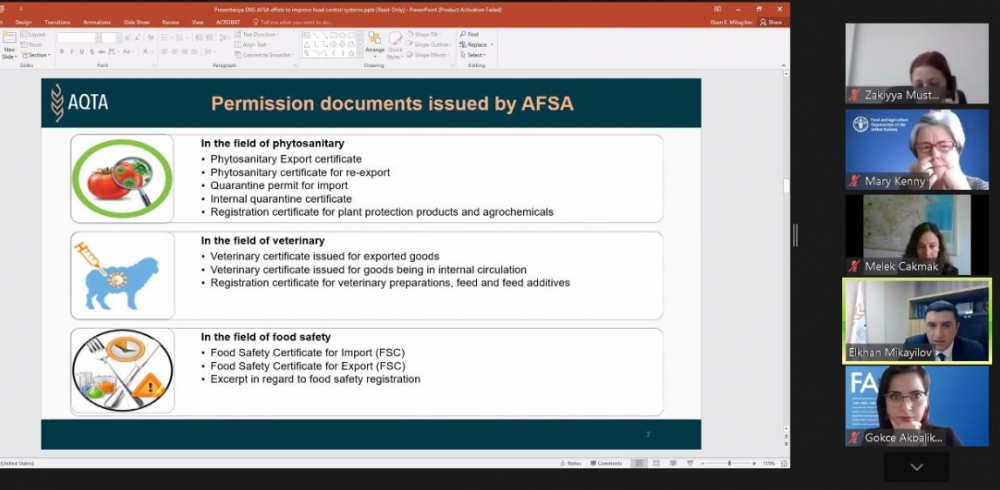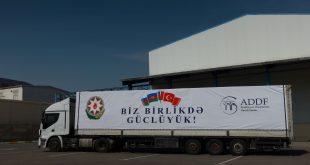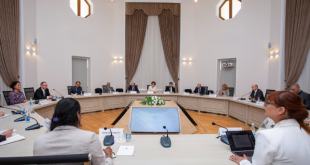
Food systems need to produce enough safe food for all. To this end, FAO has initiated a three-year project to amplify support for food safety controls in five countries: Azerbaijan, Kyrgyzstan, Republic of Moldova, Tajikistan and Turkey. The project includes regional and national components and was launched at a high-level national inception meeting in Azerbaijan on 16 March, with the participation of representatives from FAO, Azerbaijan and Turkey.
Entitled “Improving national food safety systems and regional cooperation”, the project is financed by the Government of Turkey through the FAO-Turkey Partnership Programme on Food and Agriculture (FTPP II). It aims to strengthen official food safety controls and communication about risks in recipient countries, and provide an enabling environment for public and private sectors to address priority food safety risks. The project will also support the creation of more inclusive and efficient food safety systems in beneficiary countries, and prioritize improvements in agrifood trade and market integration by focusing on the implementation of risk and evidence-based food safety controls. The project will last three years (1 January 2021 – 31 December 2023).
The project is based on the understanding that an effective food control system – from farm to table – provides benefits for all stages of the food supply chain and all actors involved. Being cognizant of the risks and social costs of unsafe food, the Government of Azerbaijan established the Food Safety Agency (AFSA), in 2018, with a view to developing and enforcing legal regulations and official food controls to protect consumers and ensure fair trade.
The national inception meeting began with opening remarks by Melek Çakmak, FAO Representative for Azerbaijan, Yunus Bayram, Deputy General Director of Food and Control at the Ministry of Agriculture and Forestry of Turkey, and Zakiyya Mustafayeva, Deputy Chairperson of AFSA. Çakmak explained that this multi-country project will provide an excellent opportunity for the beneficiary countries to share experiences and take advantage of cross-learning opportunities. Mustafayeva was also highly positive that the outcome of the project will be supportive and advantageous for both food business operators in Azerbaijan and the AFSA. Bayram reiterated that this project will contribute to enhancing the capacities of national food safety authorities and food business actors involved in risk-based inspection, and will play an important role in the development of effective risk management structures.
Following the opening remarks, Mary Kenny, the Lead Technical Officer of the project, explained the main objectives of the project to the participants. She emphasized that the project builds on ongoing efforts by AFSA and the Agency’s longstanding cooperation with FAO. A series of technical presentations on planned activities provided an insight into upcoming aspects of the project.
The project meeting provided an opportunity for participants to share knowledge and experience in the area of food safety systems, and represented a positive step in efforts to bolster Azerbaijan’s institutional arrangements in this field.
 Oval Useful news from Azerbaijan and Caucasus
Oval Useful news from Azerbaijan and Caucasus


